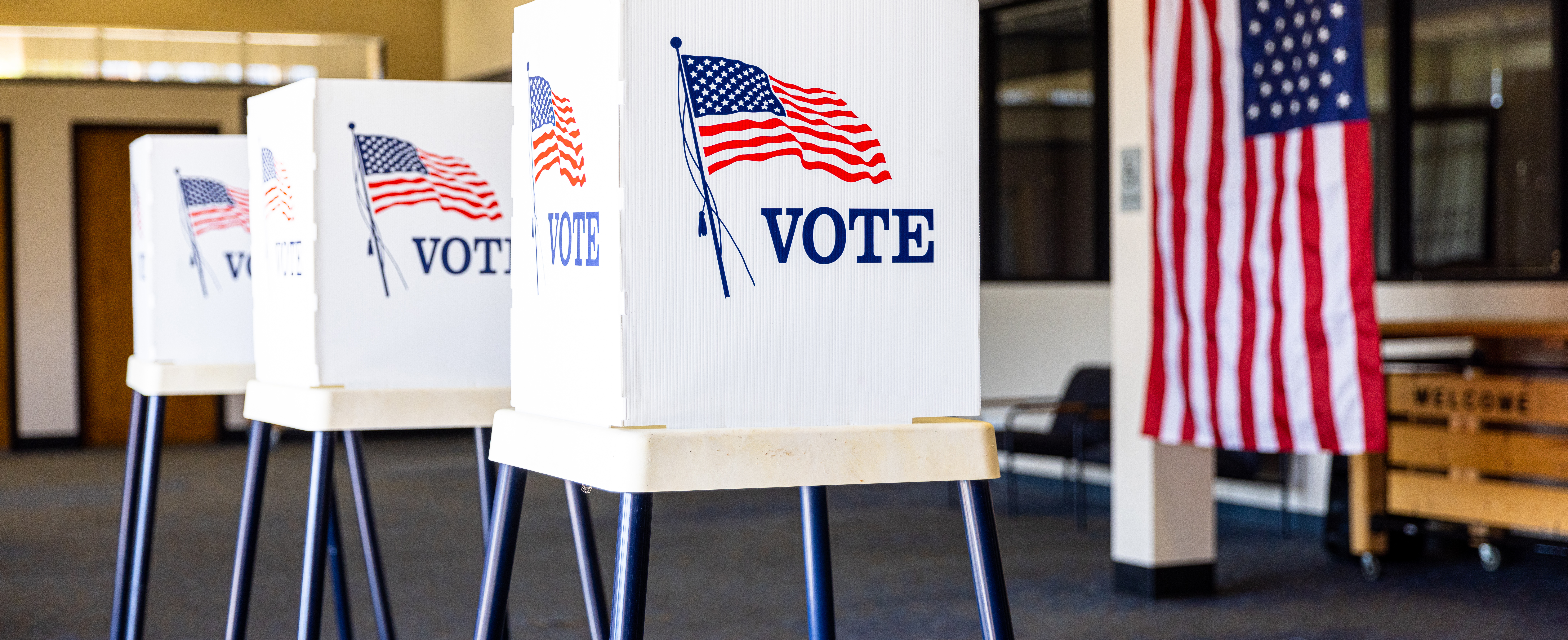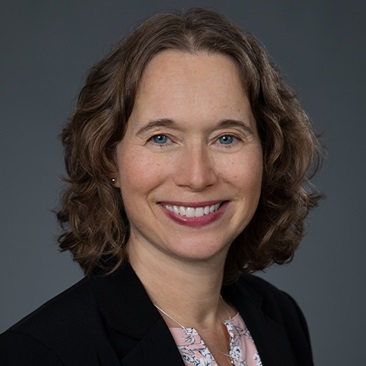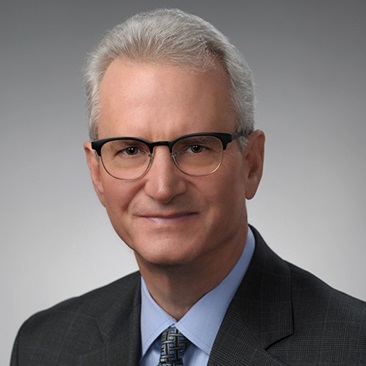
Pollster Joins Maxwell School Panel to Explore Super Tuesday and Beyond
March 8, 2024
John Zogby ’74 M.A. (Hist) joined political scientists for the State of Democracy lecture to examine voter turnout and other top issues affecting the 2024 election.
The 2024 presidential race between frontrunners Joe Biden and Donald Trump is the “highest intensity, lowest interest” race Maxwell alumnus John Zogby ’74 M.A. (Hist) said he has seen in his 40-plus years of leading national public opinion polls.
While the candidates are nearly neck-and-neck in recent polls, Zogby says a high percentage of voters remain undecided, “not because they don’t know anything about Joe Biden or Donald Trump.” He added, “They’re undecided because they’re not sure they’re going to vote.”
Zogby shared this perspective during a March 1 State of Democracy lecture organized by the Maxwell School’s Campbell Public Affairs Institute. Titled “Campaign 2024: Super Tuesday and Beyond,” the event was held over Zoom and, in addition to Zogby, featured a panel of Maxwell political science faculty members: Shana Kushner Gadarian, professor and associate dean for research; Baobao Zhang, assistant professor; and Mark Brockway, assistant teaching professor.
Grant Reeher, professor of political science and Campbell director, moderated the 90-minute conversation, starting with a question for Gadarian: “What do you think is the most important thing that our viewers should have at the forefront of their minds, at this point in the election cycle—something that they should remember or keep an eye out as we head into Super Tuesday?”
Gadarian said voters ought to consider what issues are important to them and help steer the conversation among candidates to those issues. “One of the things that would be good to keep an eye on are what are the policies that voters say they care about,” she said, later adding, “It’s not simply about who’s ahead in the polls, it’s about the policies that American government can affect.”
Brockway echoed the sentiment. “Politicians want you to pay attention to issues that they want you to pay attention to, not necessarily the issues that are important to your life and the lives of people around you,” he said.
Zhang said she is concerned about the impact of AI on the election “and lots of other elections going forward.”
“I don’t want to give you a doomsday scenario saying AI is going to ruin everything, but it will make certain things more challenging,” said Zhang, who is a senior research associate with the Autonomous Systems Policy Institute and one of 15 scholars from across the U.S. chosen to serve in the inaugural cohort of AI2050 Early Career fellows. “For instance, recently in New Hampshire, we have seen this case where someone used a robocall to spoof President Joe Biden’s voice telling people to abstain from voting.”
While the Federal Communications Commission has since banned such calls, Zhang said the issue of deep fakes and false information will no doubt play a role in the campaign season, especially on social media. She encouraged voters to stay vigilant about checking sources. “If it seems like a viral thing that is becoming increasingly popular, make sure that before you hit the share button, to verify that it’s actually factual information,” she said.
Zhang, who recently received U.S. citizenship and registered to vote, then pivoted to voter turnout. “Neither of the candidates are really super popular among the public right now,” she said.
Later in the conversation, Zogby shared the response he received from fellow Arab Americans, polled in Michigan ahead of Super Tuesday. They were in a “hell no, we won’t go” stage, he said. “In this instance you hear Arab Americans saying, ‘We voted for Joe Biden and we like his stance on infrastructure and the money that has come into Dearborn, you know, we like his stance on this and we like his stance on that, but we’re not going to vote for him this time because of his stance on Gaza.’”
Gaza, Zogby said, has become a “wedge issue,” even among Democrats. “Just on that issue alone, we have folks that are going to say, ‘We don’t have a candidate out there,’” he added.
Reeher pointed out that this is the first election in which both frontrunners have held the nation’s highest office. “We’ve got two four-year records to compare,” he said, asking the panelists if it changes the dynamics of the election in any way.
Zhang said she teaches statistics and noted that accurate comparisons are impossible when conditions are not controlled. Because of the public’s tendency to be biased toward more recent events, voters may be more focused on what has occurred during Biden’s presidency, she said.
Brockway agreed, adding that Trump has an advantage in being able to shape the narrative about his more distant presidency. While she agreed that Trump may benefit from voters’ “memory hole,” Gadarian said the Biden campaign can benefit from comparisons in how both handled COVID-related policies pertaining to health and the economy.
Zogby said he used to be able to “go to the bank” on the polling question, “Are things generally headed in the right direction or the wrong track?” But hyperpolarization has persisted since the election of George W. Bush. He said since the election of Trump and through the Biden presidency, a high percentage of polled Americans say we’re on the “wrong track.”
Reasons run the gamut. “While there is indeed economic growth, and all the economic indicators that we’ve traditionally relied upon are pointing in a very positive direction, there’s the Dobbs decision—Roe v. Wade; there are climate disasters; even with FBI reporting that crime—especially violent crime—is going down, the perception is different,” Zogby said.
The top issue among voters, currently? “Today it is immigration,” he said. “I don’t know what the No. 1 issue is going to be six months from now.”
By Jessica Youngman
Published in the Spring 2024 issue of the Maxwell Perspective
About the State of Democracy Lecture Series
Organized by the Campbell Public Affairs Institute at the Maxwell School, the State of Democracy Lecture Series provides a forum for meaningful discussions of public issues that cut across traditional disciplinary boundaries. The next event in the series is scheduled for March 22 and will feature Pratap Bhanu Mehta, the Laurence S. Rockefeller Visiting Professor for Distinguished Teaching at Princeton University for a talk titled “Democracy, Authoritarianism and Nationalism: India in Comparative Perspective.”
Related News
Commentary

Apr 3, 2025
Commentary

Apr 1, 2025
Commentary

Mar 31, 2025
